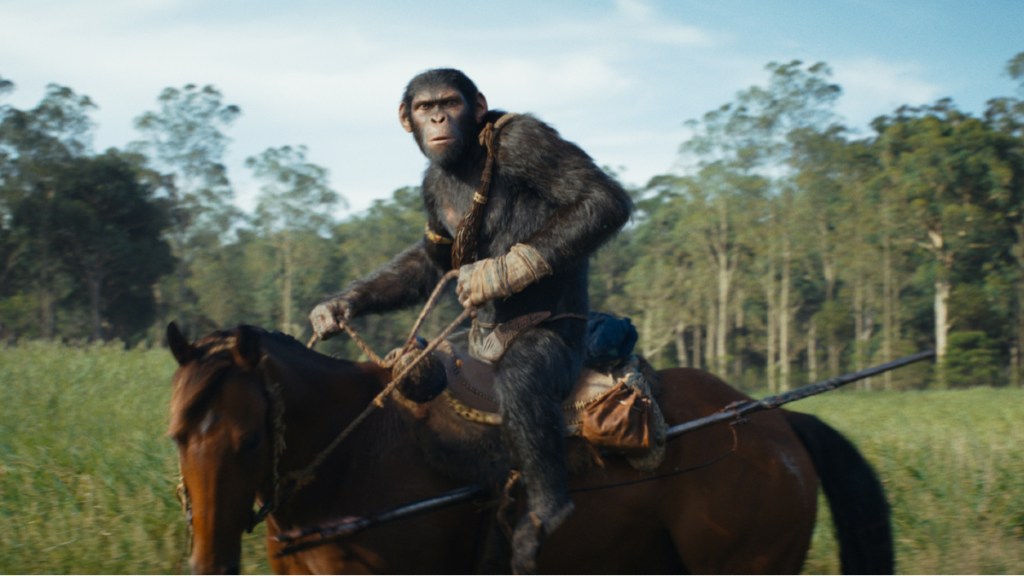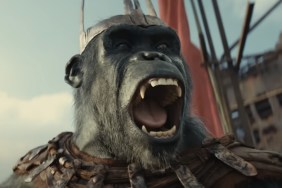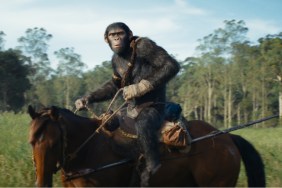If War for the Planet of the Apes was a bit on-the-nose with its Caesar-as-Moses allegory, Kingdom of the Planet of the Apes goes a long way toward retroactively justifying the choice. The movie opens with the epic, Gandhi-style funeral of Andy Serkis’ hyper-evolved chimp hero from the previous trilogy, then skips ahead “many generations” to find that some ape tribes have forgotten him entirely, while others have derived drastically different interpretations of his teachings. Enough wiggle-room is left for the audience to do likewise with the movie: perhaps it’s an indictment of militarizing a religion of peace, or maybe it’s an endorsement of religion against a totalitarian state. Either way, it’s more effective social commentary than we’ve seen in a while from this franchise, one that began as almost nothing but.
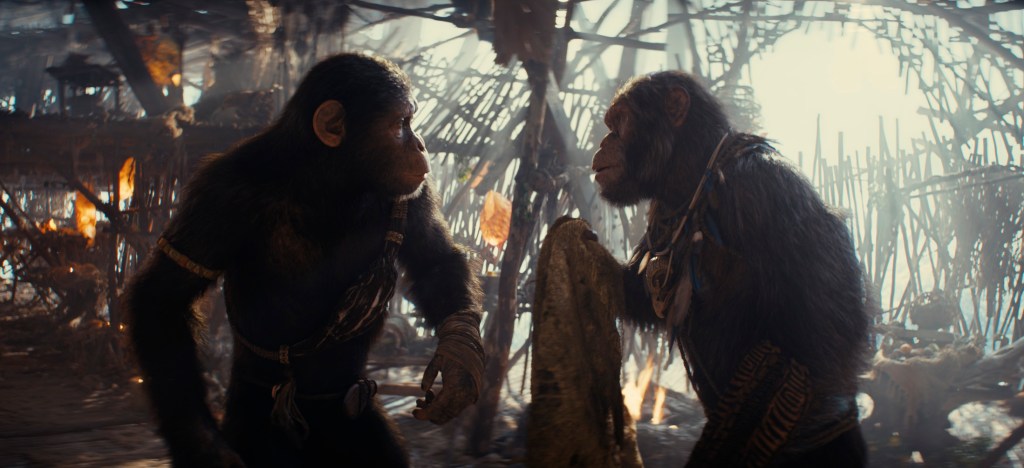
Taking its cue pretty heavily from the most acclaimed part of Dawn of the Planet of the Apes — its lengthy, human-free, wordless intro — Kingdom adopts the leisurely pace of a nature documentary. Or at least it does so after its first action sequence, a Donkey Kong Country-like mini-adventure to steal eggs that feels like the world’s most graphically advanced platform game. The tribe of chimpanzees initially shown are falconers, who raise birds of prey from hatching to be their loyal companions. Our entry point is Noa (Owen Teague), son of the clan’s bird master and saddled with a near-biblical moniker that hints at aspects of his future.
Shell, Shocks
When the egg Noa has been nursing gets prematurely broken, he sets out covertly to replace it. Instead, he winds up setting a chain of events in motion that ends with violent, shock stick-wielding gorillas invading the village and hauling every ape away as captives. Those who survive the fight that is. Avoiding seemingly certain death, Noa remains the sole survivor of the incursion and sets off on a quest to find and rescue his friends and family. Along the way, he’ll encounter a wise, semi-pacifist, ambiguously maybe-gay orangutan named Raka (Peter Macon) and an unusually intelligent, non-mute human named Mae (Freya Allan) who seems to have found a line on lip gloss and eyeliner in the post-post-apocalypse.
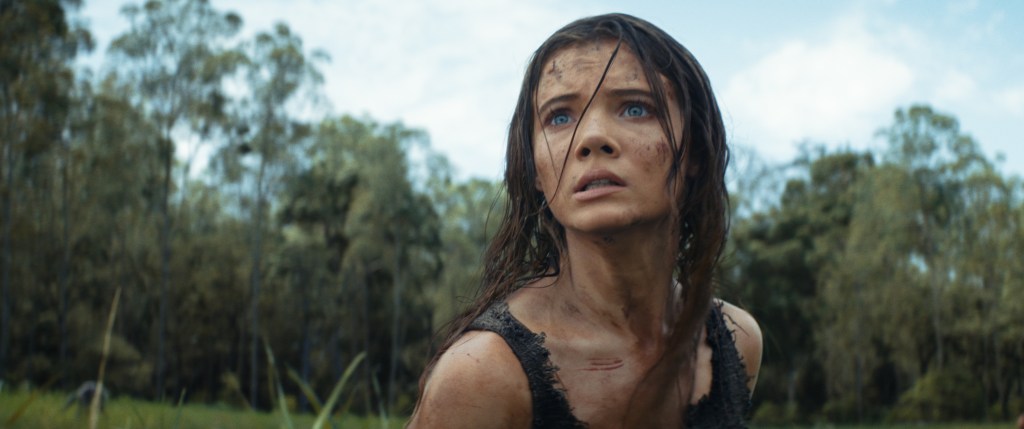
Fox franchise films in the 2000s and beyond frequently had a tendency to re-use a very similar Pacific Northwest setting, fittingly dubbed the “Fox forest” by movie podcaster LexG. Kingdom has Disney money now, so while some degree of forest is still involved, it’s shot in Australia and digitally extended, all the better to look more like The Jungle Book and Pandora than someone’s extended Portland estate. Not everything about it makes sense — a building familiar to west coasters gets the Statue of Liberty treatment, but unless the Earth’s climate has undergone a far more dramatic shift than any models predict, it is in a biome far unlike that of its real location. Then again, the original movies were hardly the most realistic post-nuke scenarios ever, and we rolled with it.
Noa’s Arc
Seemingly inspired by equal parts Akira Kurosawa, Rod Serling, and various Donkey Kong and Fallout gaming sessions, Kingdom takes its time to move its story pieces into place, taking its protagonists through a dark tunnel into the Forbidden Zone, where long-abandoned cities await, along with clues to the history of this world that Noa has grown up ignorant in. Like the equally impeccably made-up Lucy from Fallout’s TV adaptation, Mae doesn’t exactly belong in this world but has a mission. Noa must decide if she’s little more than a wild animal, as he’s been taught, or a potential equal, as Caesar might have suggested, depending on which ape you ask.
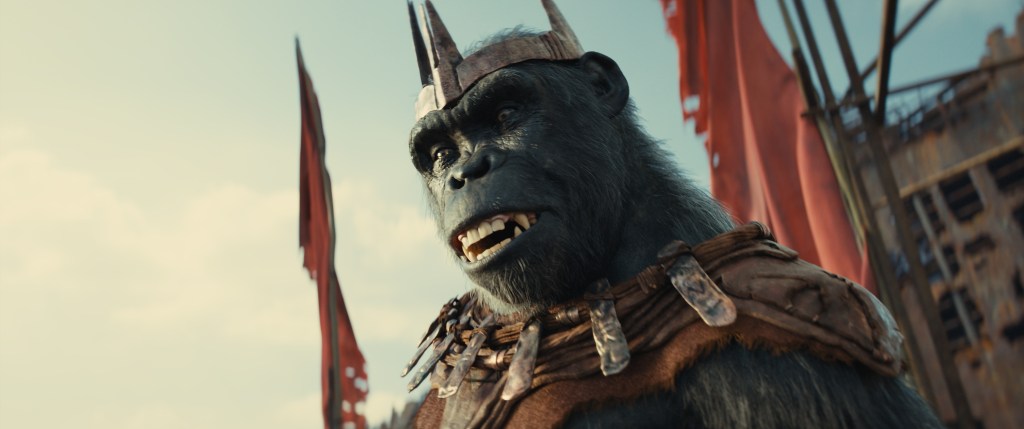
We’re well into the 145-minute running time before the primary antagonist even shows up, and he’s a large, crowned bonobo named Proximus Caesar (Kevin Durand) who fancies himself as both Messiah and nu-Roman Emperor. He’s brutal and narcissistic, but not without reasonable points — it’s hard to argue with his logic that the only humans at hand have done little to earn any ape’s trust. Perhaps patterned on Indiana Jones and the Temple of Doom’s Mola Ram, another late-arriving villain whose forces raid his own neighboring communities for slaves, he’s not wrong about who the oppressors once were. He simply can’t see that in response, he’s become just as tyrannical. His sheer size makes him extra-intimidating, not to mention the fact that Durand (and Macon, for that matter) seems to be doing his best James Earl Jones voice.
“You Maniacs!”
The apparent franchise mandate to squeeze in both a same-y climax and anything resembling a final twist just because feels forced and confusing, but the cynicism the movie has toward any notion of lasting peace hits about right. Unlike the way Dawn barely changed its status quo stalemate by the end, though, Kingdom feels like it leaves its characters in a place of more knowledge, if not happiness. In that sense, it adds yet another biblical allegory, this one of leaving Eden.
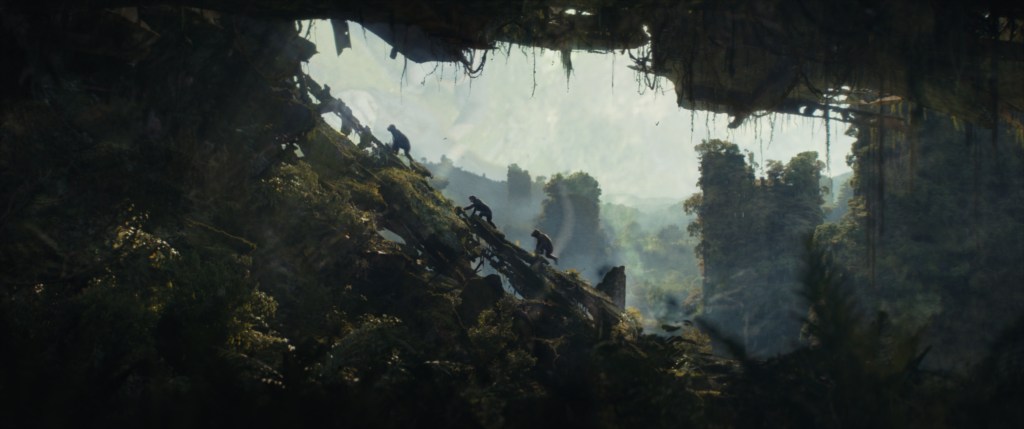
Future wasteland tales are director Wes Ball‘s forte at this point — he went from The Maze Runner trilogy to this. It’s a step up, possibly because his skills have improved but also because the Planet of the Apes series is one that delights in giving directors leeway towards (a certain amount of) subversion. Will that extend to grace for subversion of the summer movie formula to the point that Kingdom actually contains very little action alongside the slow-burn immersiveness and religious critique? Time and audiences will tell, but this reviewer has been won over. Caesar as literal Moses has become Caesar as a misappropriated Christ symbol, and that’s a brilliant way to continue the saga while maintaining its moral heft.
Grade: 4.5/5
Kingdom of the Planet of the Apes opens May 10 in theaters.
